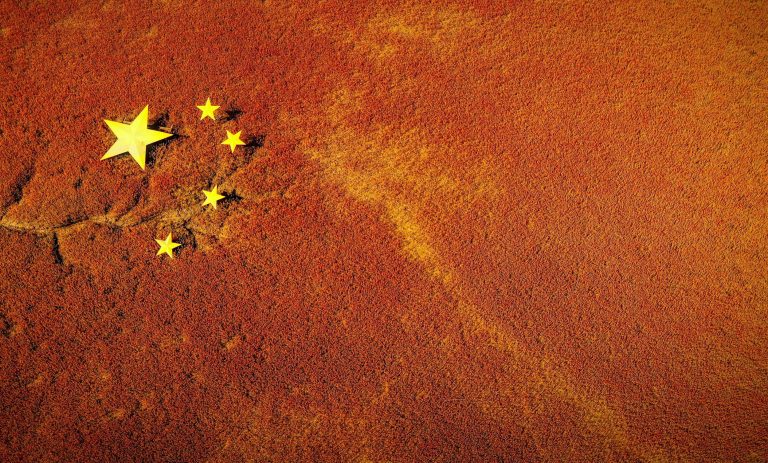Arkansas has become the first state to order a Chinese company to relinquish ownership of local land, amid fears of Beijing's efforts to maliciously infiltrate and influence the US through various means.
On Tuesday, Gov. Sarah Huckabee Sanders announced that she had ordered Syngenta to give up 160 acres of land in northeast Arkansas, accusing its owner of “posing a clear threat to our state.” The Swiss-based agricultural chemical producer was acquired in 2017 by state-owned China National Chemical Corporation and mainly markets pesticides and seeds.
“Seeds are technology,” Sanders said at a news conference. “Chinese state-owned companies are filtering this technology back home, stealing American research and telling our enemies how to target American farms. This is a clear threat to our national security.”
Syngenta has yet to publicly comment on the announcement. Newsweek reached out to the company and the Chinese foreign ministry via email for comment on Wednesday.
Al Drago-Pool/Getty Images
There have been growing concerns in the US about China's influence on the economy, with a strong focus on the agricultural industry. In August, at a roundtable in Dysart, Iowa, hosted by a bipartisan delegation from Congress, farmers accused the Chinese state of stealing samples of genetically enhanced seeds—in some cases, straight from the field—to breed back home.
The delegation cited a 2012 case in which a Dysart farmer spotted a man in business attire digging up hybrid seeds, which were then sent back to China. Mo Hailong was later arrested by the FBI for stealing US agriculture trade secrets and convicted of various crimes related to the long-running conspiracy in 2016.
The FBI estimates that Chinese intellectual property theft costs the US economy between $225 billion and $600 billion annually, describing the East Asian nation as the world's “leading” infringer of proprietary knowledge.
America's enemies are on the march. They are smart, they are brutal and they will stop at nothing to harm our country.
Arkansas is the first state in the country to fight back and kick a Chinese company off our farmland. pic.twitter.com/oNXZ3zIZm0
— Sarah Huckabee Sanders (@SarahHuckabee) October 17, 2023
In 2020, FBI Director Christopher Wray said the agency had seen financial espionage cases linked to China rise by about 1,300 percent.
Sanders noted that Beijing enacted a law in 2017 requiring Chinese nationals living abroad to cooperate with its intelligence apparatus. “It's not about where you come from,” he said. “We welcome Chinese Americans.”
Official figures show that Chinese investment in US land constitutes less than 1 percent of foreign-owned land.
National security fears arose earlier this year over a parcel of land 12 miles from Grand Forks Air Force Base in North Dakota owned by Binzhou-based Fufeng Group, where the company hoped to build a wet corn milling plant. Since then, questions have been raised about a mysterious company that was allowed to buy land bordering Travis Air Force Base in California.
There have been several recent legislative efforts to limit Chinese ownership of US soil. In May, Florida introduced a new law barring Chinese nationals from buying land within a 5-mile radius of the state's military installations.
“Other states should follow suit and refuse to let the Chinese Communists own American land,” Republican Sen. Tom Cotton of Arkansas wrote on X in response to Sanders' announcement.
Uncommon Knowledge
Newsweek is committed to challenging conventional wisdom and finding connections in search of common ground.
Newsweek is committed to challenging conventional wisdom and finding connections in search of common ground.



